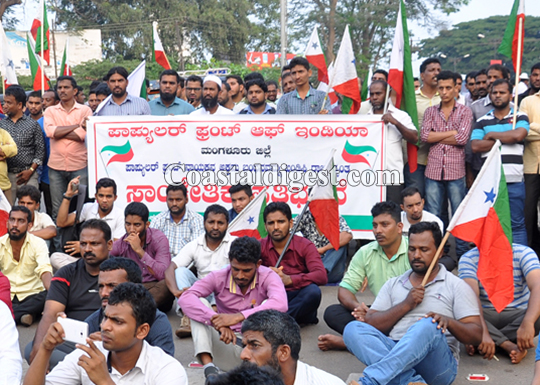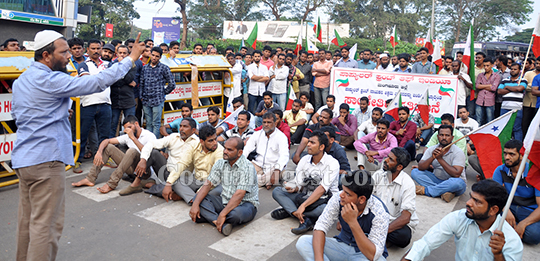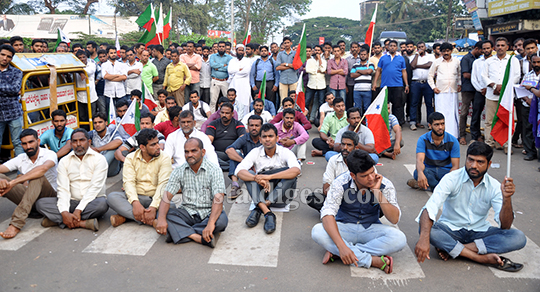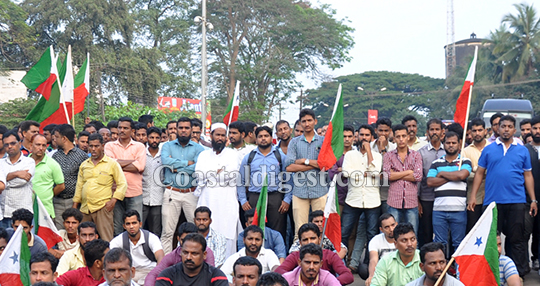Mangaluru/Udupi, Nov 3: The arrest of Popular Front of India's Bengaluru district unit president Hashim Sharif has triggered protests across Dakshina Kannada and Udupi districts.
Nearly 200 PFI activists gathered in front of the office of deputy commissioner in Mangaluru to denounce the alleged politicisation of the coldblooded murder of RSS activist Rudresh and arrest of Mr Sharif.
PFI Udupi district committee held a protest in front of clock tower near service bus stand in Udupi. Protest meets were also held in Puttur, B C Road and other parts of coastal Karnataka.
The protesters denied their organisation's role in the October 16 murder case and called the arrest of their leader a political conspiracy.
They accused the police of bowing down to the pressure of Sangh Parivar, which had earlier said that it would seek ban on PFI if its involved in the murder case was confirmed.
In a press release issued here, the PFI said that this was not the first time the Sangh Parivar targeting the organisation. “In the part to PFI had faced similar baseless allegations and media too had waged a hate campaign against PFI. However, their allegations proved to be false so far,” it said.
“The Sangh Parivar and media had blamed PFI for the murder of Manjunath in Shivamogga and Harish Poojary in Bantwal. However, later it was proved that Manjunath was murdered in a property row and Poojary was murdered by Bajrang Dal leader Bhuvit Shetty,” the release said.
“In Rudresh murder case too, the Sangh Parivar is trying to target PFI since the beginning. The police have already arrested four persons who have no connections with the organisation. Now, the police picked up a PFI leader just to appease the Sangh Parivar,” it said demanding the immediate release of Mr Sharif.
Also Read: New twist in RSS activist murder: PFI Bengaluru president arrested









Comments
Love you pfi
Jignesh, it's good that they are all in photos. Easy for the police to catch these guys. All their faces Look like petty thieves and criminals
What do you expect from people who only have madrasa level education ?
Jignesh if the victim is your brother then?
jobless foolish people. dont have any jobs
Add new comment